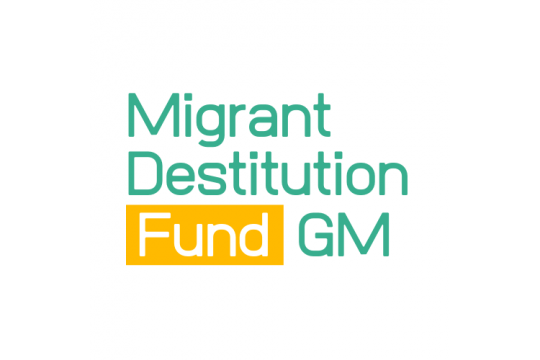The Greater Manchester Migrant Destitution Fund: Promoting Dignity amidst the Hostile Environment
The Greater Manchester Migrant Destitution Fund supports people who are forced into destitution by their immigration status with cash grants of £80 per month. The largest group of people applying to the fund are people who have been refused asylum. For such people, who may have been wrongly refused asylum amidst the Home Office’s notorious culture of disbelief, the only pathway out of destitution is to make a fresh claim for asylum. This is not easy: there is a dire shortage of immigration advisors following austerity-driven cuts to legal aid, and gathering new evidence is an arduous process for anyone, even more so for people struggling to get by while living in destitution.
Banned from working and claiming benefits, people are forced into dependency on others, and exposed to risk of exploitation and abuse. Nearly one in ten applications come from people who are street homeless; but most are in arrangements of varying degrees of stability with friends, family or acquaintances – who may themselves be living in financial hardship. Destitution takes a severe toll on mental and physical health. The average amount of time applicants to the fund report being destitute is 3 years, with many reporting more than a decade of living in destitution.
The fund’s cash grants provide a crucial lifeline – promoting wellbeing, reducing dependency on others, and offering a measure of hope, freedom and dignity. We do not stipulate what the grants are spent on, and do not require recipients to account for them, but feedback suggests that they go towards fresh, culturally appropriate food; phone credit for keeping in touch with loved ones in the UK and in country of origin; travel expenses to crucial medical or legal appointments; and contributions to hosts’ household expenses.
As one lady told us, “It has changed my life… When I don’t have it, my depression is up – because begging people, I’m tired of it… This money, it will validate my life… Although it’s little money, it’s £1000 to me.”
For some, being able to meet everyday needs offers the headspace to engage in the arduous process of escaping destitution. As another recipient told us, “It’s less things to worry about, it’s the confidence of knowing that you have some money coming in – it brings the energy up, give you positive energy.”
The fund operates through a network of frontline organisations who are working directly with people who are destitute. We keep the application process as simple as possible – we do not require people to document their destitution, as we recognise that this is not easy, and we do not want to replicate the culture of disbelief within the Home Office. We also do not require referral partners to advocate on people’s behalf – if people meet our straightforward eligibility criteria, they will receive a grant.
As it has grown, the fund has become more than just a sticking plaster and we have transitioned to a ‘fund-plus’ model. As we operate through a network of referral partners – ranging from large refugee organisations, homeless organisations, to small-scale community organisations – we have been able to build partnerships to share knowledge and expertise across the network. Although we keep the application process as unobtrusive as possible, it is often possible for us to signpost the referral partner to advice that might, in the best-case scenario, offer a pathway out of destitution.
The core demographic that the fund reaches remains people who have been refused asylum, but we are open to anyone forced into destitution by the layers of hostile immigration legislation that have accumulated over the decades. We have had applications from people who have been resident and working in the UK for decades before being caught up in Theresa May’s hostile environment legislation. We have had applications from EEA nationals unable to regularise their status following Brexit. Most recently, we have seen applications from people on care worker visas. These are people recruited to plug gaps in the UK’s social care system broken by decades of neglect. Outrageously, many have found themselves abandoned by their sponsor in what amounts to a form of legalised people trafficking. With no work from their sponsor, and not allowed to work for another employer or to access benefits, they are forced into destitution – as well as being saddled with debts incurred in acquiring the visa. Looking ahead, we expect to see levels of destitution escalate dramatically if and when the cruelest parts of the recent Illegal Migration Act are brought into force. Denying people arriving irregularly the right to claim asylum, the Act is widely expected to force people underground, leaving them destitute and open to exploitation.
At MDF, we stand against all aspects of the hostile environment. We want to see a society where everyone, no matter where they come from, is free to live as equal members of our communities, able to contribute and access the state safety net. Until then, we are committed to promoting dignity and wellbeing amidst the hostile environment.
“I’m speaking not just for me, I stand for everybody – this money, when there’s not a cent in your pocket, you start thinking many things… ‘Who am I? Where am I going to get money from?’ It’s helpful for our journey while we are still waiting.”
If you would like to support the Migrant Destitution Fund, you can make a donation here https://localgiving.org/charity/macc/project/migrantfundGM/
